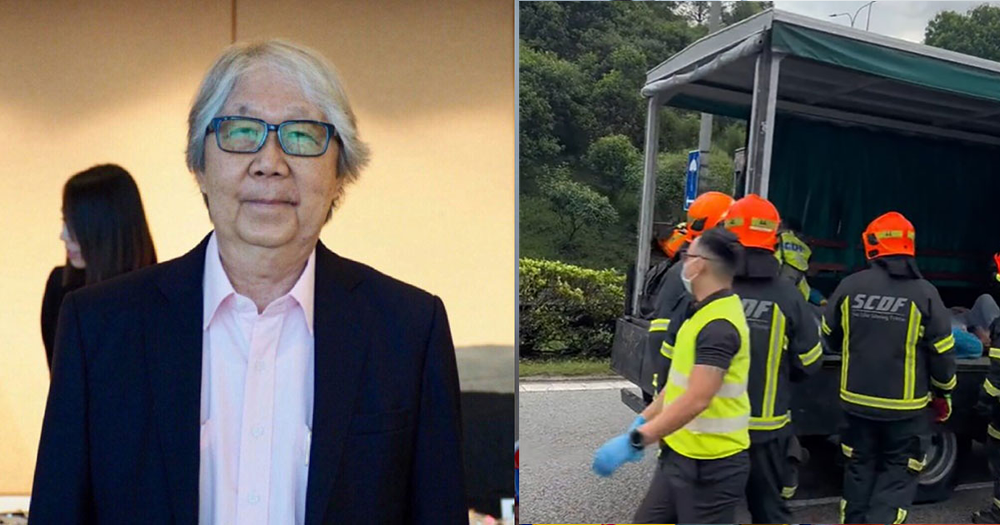Responding to a joint statement by 20 business groups warning of "complexities" should firms be banned from ferrying workers in lorries, Singapore's Ambassador-at-large Tommy Koh called the claims "scare tactics".
"I am not surprised that 20 business groups have issued a joint statement opposing any change to the status quo," he wrote in a Facebook post on Aug. 2.He added:
"They are resorting to scare tactics to support their cause, warning about delays in the completion of projects and traffic congestion.
The real reason for their opposition is money."
The debate
The statement, which urges "careful consideration" by the government when looking at potential regulatory changes to the practice, comes in response to two separate statements issued to the government last week.
A total of 100 groups and individuals were signatories to the two statements, which called for improvements in safety standards.
The push follows consecutive road accidents on Jul. 18 and 19, in which a total of 37 people — mostly migrant workers — were injured.
Addressing the business groups' statement, Koh pointed out that requiring firms to transport their migrant workers in vehicles with seats and seatbelts would increase costs.
"We should not be misled by their campaign," he wrote.
He added that Singapore has the "dubious distinction" of being the only wealthy country that allows this practice.
He added:
"First, the lives of foreign workers are as precious as our own.
Second, they should be treated in the same way as we treat ourselves. We require all persons to have seats and seat belts. This should be extended to our foreign workers.
Third, as a First World country, we should abolish practices from the past which are incompatible with our status and reputation."
Other responses
The Ministry of Transport has since released a joint statement with several other industry associations, responding to the petitions and statement by the business groups.
The MOT statement acknowledged that the current practice is "not ideal", but agreed that change may come with financial costs, as well as structural and operational challenges.
In recognition of the two sides, the government has "encouraged companies and industry associations to work towards alternative transport arrangements for their workers, without removing the exception under the Road Traffic Act."
In the meantime, members of the public have continued to speak up against the business group's statement.
In a tweet, political scientist Ian Chong called their warnings "conjecture", noting that they presented no evidence to support their position that such change would lead to congestion and infrastructure delays.
Sociologist Shannon Ang tweeted: "Something is clearly broken if our entire construction industry is only sustainable when we exploit migrant workers."
Top image via alexkutty117/TikTok and Sulaiman Daud,
If you like what you read, follow us on Facebook, Instagram, Twitter and Telegram to get the latest updates.



